OCLC: Design Research and Workshops
 The challenge
The challenge
How might a global cooperative gather institutional insights while training product managers?
 About the Project
About the Project
OCLC provides technology services, research, and programs for the library community. The company wanted to better understand the needs of their Tipasa clients. (Tipasa is a cloud-based inter-library loan system, enabling institutions to easily manage the loaning and borrowing of their inventories.)
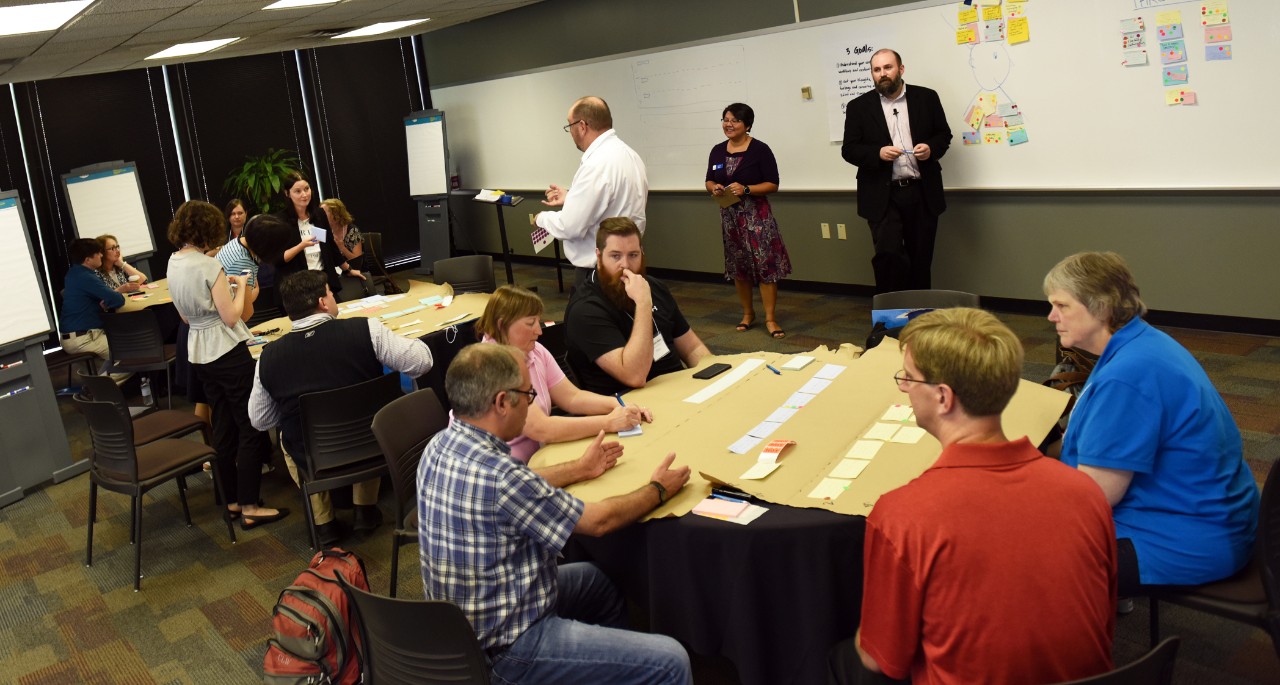
Edward Stull Consulting proposed a comprehensive research program to assist OCLC’s efforts, including a 5-hour and a 2-hour version of a workshop. Each version of the workshop contained several exercises, designed to produce actionable and scalable research data. The exercises leveraged design thinking and game storming techniques, such as empathy maps, north stars, and journey mapping.


Scripted workshops
Participants
Major findings
Research reports
Design Thinking Exercises
Empathy maps uncovered the thoughts, feelings, and behaviors of workshop participants. North star exercises revealed the interconnected relationships among users, systems, and workflows. Journey maps articulated step-by-step processes employed within participant client organizations.
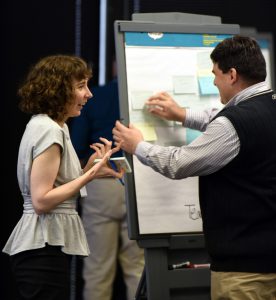 Two of the participants
Two of the participants
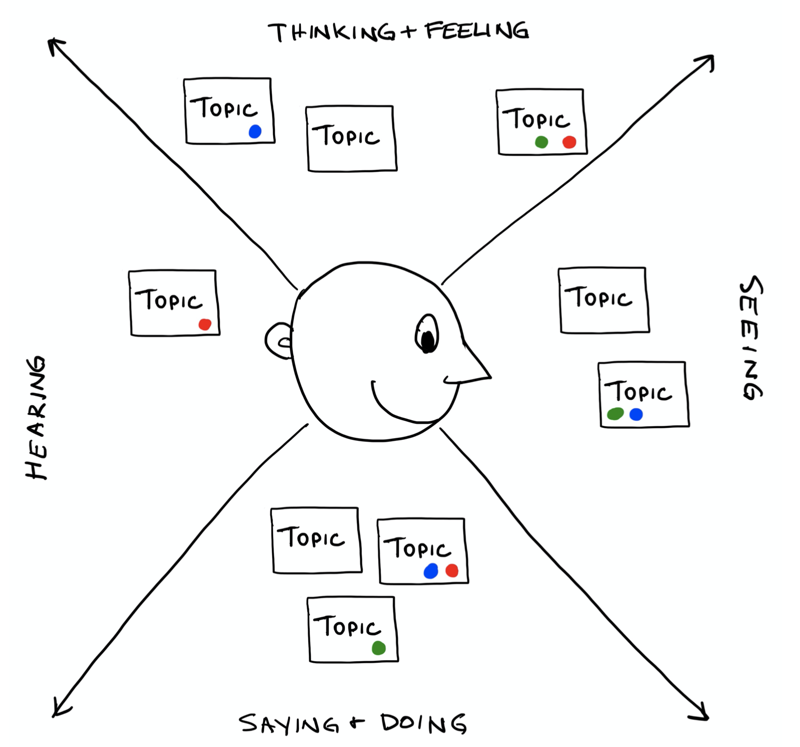 Empathy mapping exercise ( View image )
Empathy mapping exercise ( View image )
Scripted Workshops
A detailed, written script drove the workshops. It covered the facilitator’s oration, presentation cues, and participant exercises. Designed to be precise but flexible, the script noted everything from a shopping list of supplies to a full matrix of research exercises, prompts, and goals.
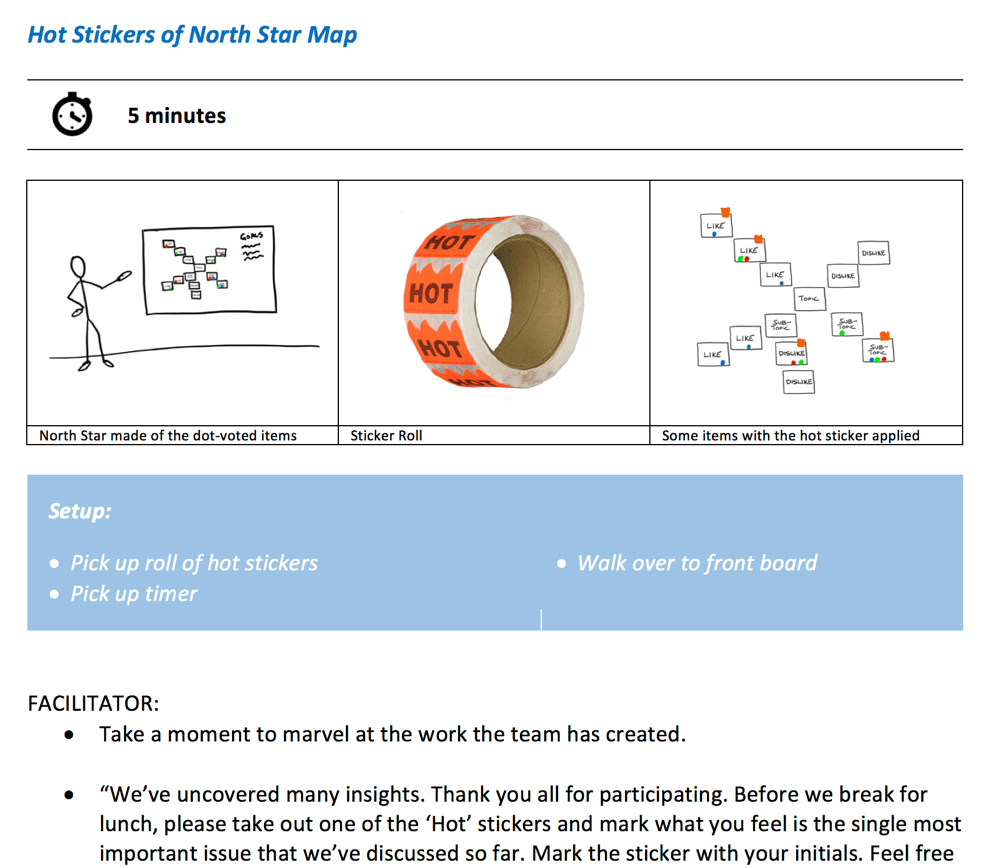 Workshop script ( View image )
Workshop script ( View image )
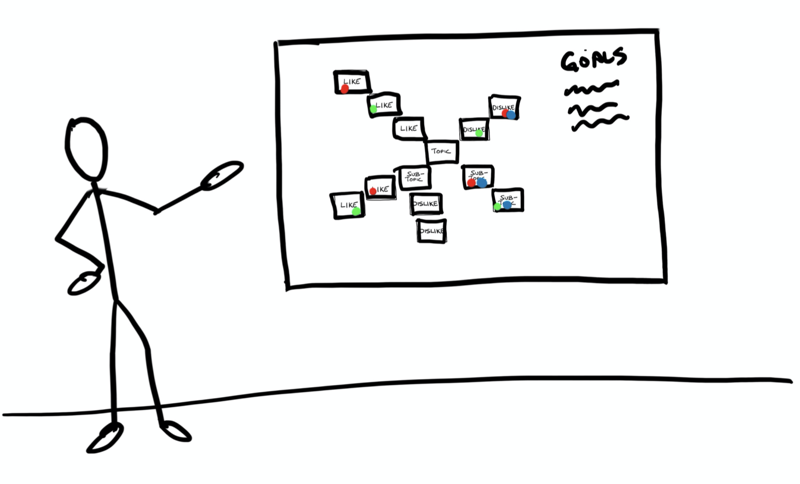 Diagram from workshop script ( View image )
Diagram from workshop script ( View image )
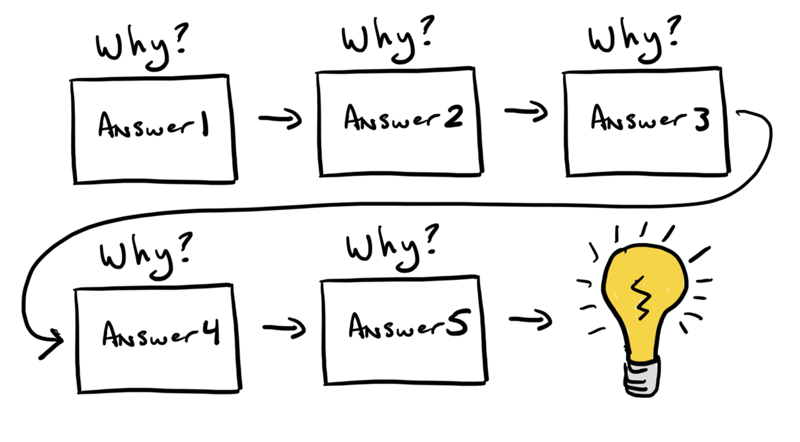 Five Whys exercise ( View image )
Five Whys exercise ( View image )
Quant and Qual Findings
The workshops solicited both practical and emotional responses from participants. The responses generated qualitative and quantitative research data, which could be tracked over time via longitudinal studies. Upon completion of the pilot workshop, Edward Stull Consulting created several internal-facing research reports for OCLC.
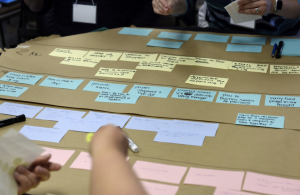 Participants creating a journey map
Participants creating a journey map
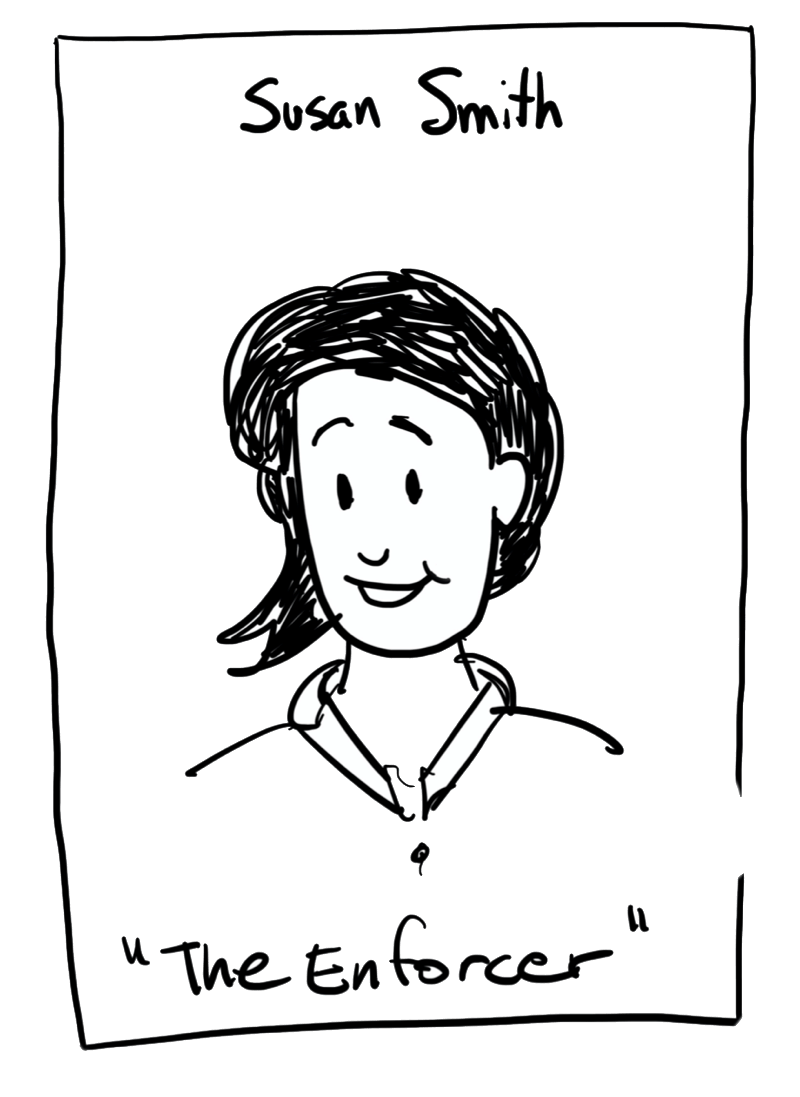 Persona card
Persona card
“Each one of our libraries is distinct. Therefore, what we’re doing to serve them is distinct.”
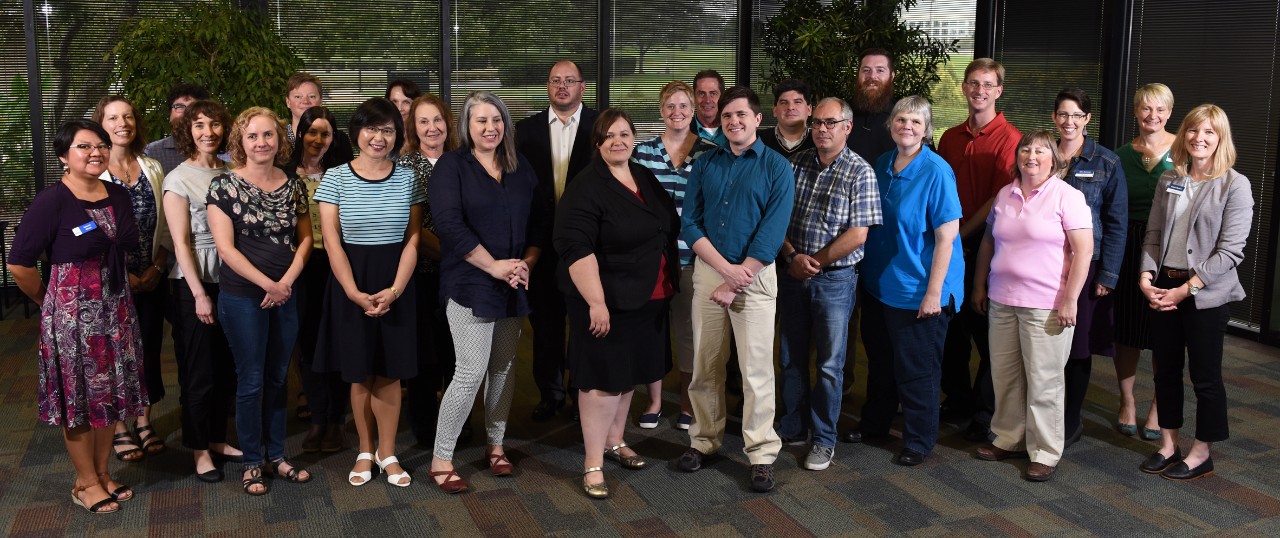 Workshop participants
Workshop participants
The reports detailed topics covered during the workshop, such as participants’ desired workflows for Tipasa. The resulting insights enabled OCLC to examine users’ underlying motivations, evaluate institutions’ customizations, and assess customers’ willingness to adopt their products. By doing so, OCLC improved their product offering and enhanced their relationships with users.